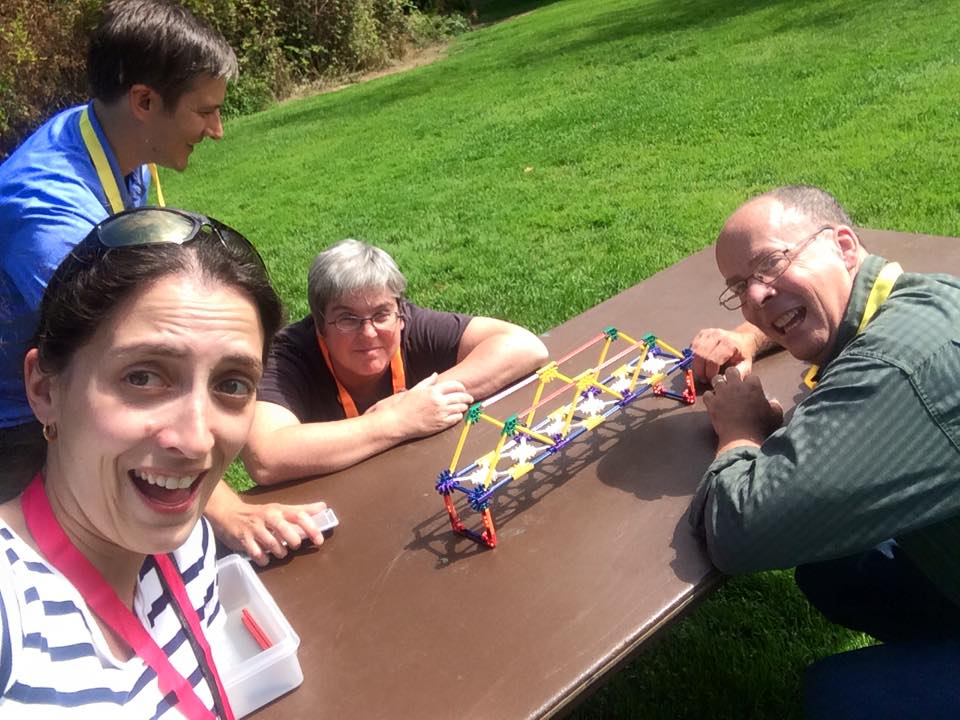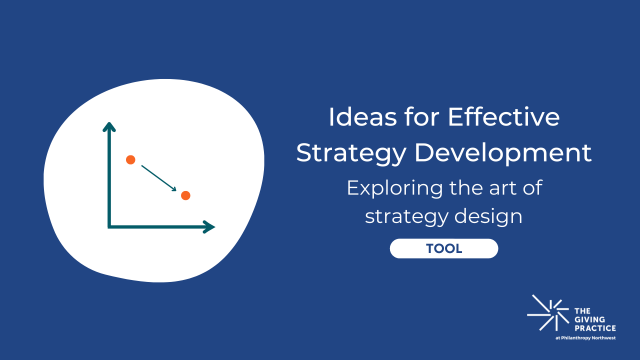
Nicole Neroulias Gupte, Communications Manager
Our staff retreat last month at Islandwood on Bainbridge Island required only a carry-on bag, but mentally, I'm still unpacking it all.
At other places I've worked — mainly newspapers and small nonprofits — conventional wisdom was that we had neither the time, budget nor need for an annual retreat. Now that I've finally experienced one, I'm wholeheartedly convinced that getting out of the office and out of our comfort zones, even for just a day and a half once a year, gives us the renewed energy and refreshed perspective we need to move forward individually and as a team.
Philanthropy Northwest has additional considerations this year. About one-third of our staff is new, we've added a regional impact investing project and our strategy is evolving, so we were all hungry for the team-building and "getting to know you" exercises. It also helps tremendously that our staff includes a consulting team, The Giving Practice, with expertise in designing and facilitating these types of conversations, making sure we stay on track while also leaving room for new ideas and unexpected tangents.
The retreat featured a mix of large group, small group and paired-up activities, along with time for individual reflection. Our conversations were deeply thought-provoking, including tough questions about diversity, equity and inclusion. Fun activities were peppered throughout, including a K'NEX building challenge, scavenger hunt, campfire "Lighting Talks" and a "Guess Who?" list of surprising facts we had each submitted about ourselves, kept us laughing and moving throughout the retreat.

To inspire other organizations to design or rethink your staff retreat, here are some of my notes from our after-action review:
What did we expect to happen?
- Learn about the organization and staff
- Work out of the silo mentality
- Team building
- Reenergized
- Positive challenged while discussing DEI
- Learn more about our strategic plan
- Brainstorm ideas
What actually occurred?
- Lots of different methods used to get generative conversation and team building
- Team bonding experience: Improve teamwork, get to know each other
- Human-centered design
- Gained answers, and left with more questions
- Fun, laughter
- Learned a great deal about topic/people during Lightning Talks
- Learned cool facts about everyone ("Guess Who" exercise)
What went well and why?
- Good timing, setting, food and commute.
- Good opportunity to connect with colleagues who are not normally in the office.
- Variety and structure of exercises forced us to work with different people, nice opportunity for others to be leaders, nice variety of big group/small group/individual time
- Everyone was able to separate business and fun, and be fully engaged
- Sharing knowledge and learning more about what we do and how we work (strengths and weaknesses)
- Explosion of ideas: Result of adaptive nature of activities and team, discussed how to help us move forward
- Not overly designed or engineered. Great that last session was unplanned until energy from end of the first day could be assessed.
I'm already looking forward to next year's staff retreat... and saving up some new facts about myself to keep quiet until then so that I can win "Guess Who" next time!
Nicole Neroulias Gupte can be reached at ngupte@philanthopynw.org. Check out more photos from Philanthropy Northwest's 2015 staff retreat on Facebook.


